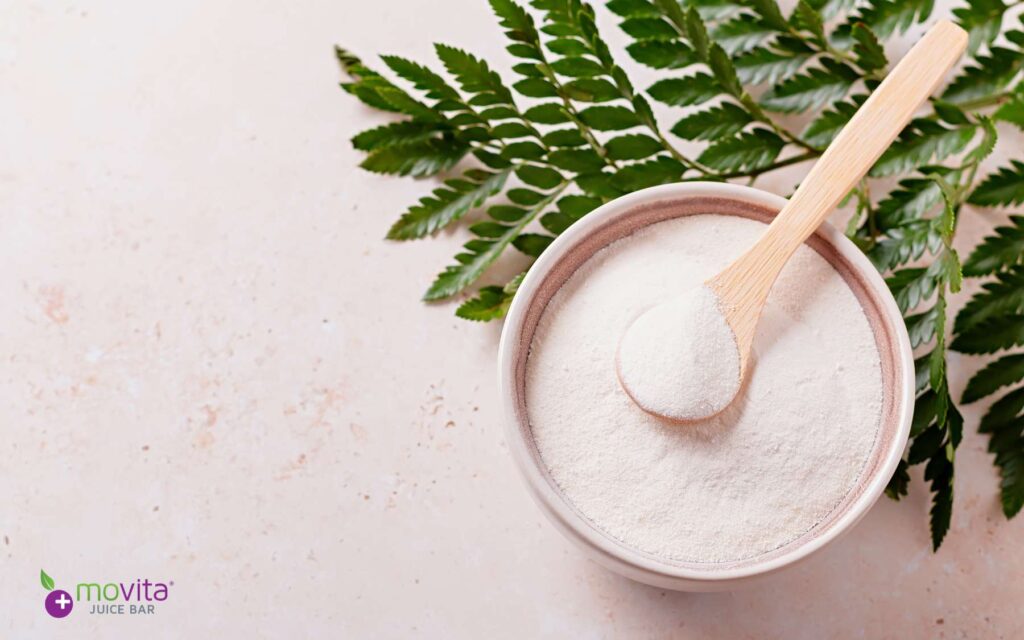
In recent years, collagen has become a buzzword in the health and beauty industry, touted for its potential to promote youthful skin, healthy joints, and strong hair and nails. But what exactly is collagen, and why is it so important? Let’s dive into the science behind this essential protein and explore the benefits, sources, and potential uses of collagen.
What is Collagen?
Collagen is the most abundant protein in the human body, accounting for about one-third of its protein composition. It serves as a crucial building block for skin, bones, muscles, tendons, and ligaments. Think of collagen as the “glue” that holds everything together. It provides structure and strength, ensuring that our tissues and organs function correctly and remain resilient.
There are at least 16 types of collagen, but the majority (80-90%) belong to types I, II, and III. Each type serves a different function:
- Type I: Found in skin, bones, tendons, and ligaments.
- Type II: Present in cartilage.
- Type III: Located in skin, muscles, and blood vessels.
The Role of Collagen in the Body
Collagen fibers are incredibly strong and flexible, making them perfect for providing structure and support. In the skin, collagen works alongside elastin to maintain firmness and elasticity. In bones and cartilage, it offers rigidity and tensile strength. In muscles, it contributes to their elasticity and ability to withstand stretching.
The Benefits of Collagen
- Skin Health: As we age, our body’s natural collagen production decreases, leading to wrinkles, sagging, and dryness. Supplementing with collagen can help improve skin elasticity, hydration, and smoothness, potentially reducing the visible signs of aging.
- Joint Health: Collagen helps maintain the integrity of cartilage, the rubber-like tissue that protects joints. Studies suggest that collagen supplements may reduce joint pain and improve symptoms of osteoarthritis.
- Bone Health: Collagen provides structure to bones, helping them stay strong. Some research indicates that collagen supplements can increase bone mineral density and reduce bone degradation.
- Muscle Mass: Collagen is an essential component of muscle tissue. Supplementing with collagen can support muscle growth and maintenance, especially when combined with resistance training.
- Hair and Nails: Collagen’s role in supporting the structure of the skin also extends to hair and nails. Some people find that collagen supplements can make their hair and nails stronger and less prone to breakage.
Sources of Collagen
Our bodies naturally produce collagen, but production declines with age and certain lifestyle factors, such as smoking, excessive sun exposure, and poor diet. To boost collagen levels, consider these sources:
- Dietary Sources:
- Bone Broth: Made by simmering animal bones and connective tissues, bone broth is rich in collagen.
- Meat and Fish: These foods, especially those containing skin and bones, are good natural sources of collagen.
- Egg Whites and Shell Membranes: High in proline, an amino acid essential for collagen production.
- Collagen Supplements:
- Available in various forms, including powders, capsules, and liquid, collagen supplements often contain hydrolyzed collagen (collagen peptides), which is broken down for better absorption.
- Common sources for these supplements include bovine (cow), porcine (pig), and marine (fish) collagen.
- Vitamin C-Rich Foods:
- Vitamin C is crucial for collagen synthesis. Citrus fruits, berries, bell peppers, and leafy greens can help support your body’s natural collagen production.
Collagen in Skincare
Topical collagen products, like creams and serums, are popular in the beauty industry. However, the effectiveness of these products is limited because collagen molecules are typically too large to penetrate the skin deeply. Look for products containing peptides and other ingredients that support collagen production within the skin.
Conclusion
Collagen is a fundamental protein that plays a vital role in maintaining the structure and function of various tissues in our body. As interest in collagen continues to grow, it’s important to understand its benefits and sources to make informed decisions about incorporating it into your health and wellness routine. Whether through diet, supplements, or skincare, there are numerous ways to support your body’s collagen levels and enjoy the potential benefits of this remarkable protein.
Follow us on Instagram @movitajuicebar
See you for our next blog post!
DISCLAIMER: These statements have not been evaluated by the FDA. The information is for informational purposes and is not intended to treat, diagnose or cure any illness. Consult a physician before taking any action.
Want to contribute great content?
We are looking for contributors provide our readers with great healthy content to encourage positive living. If you're interested in becoming a contributor pease email us at blog@movitajuicebar.com